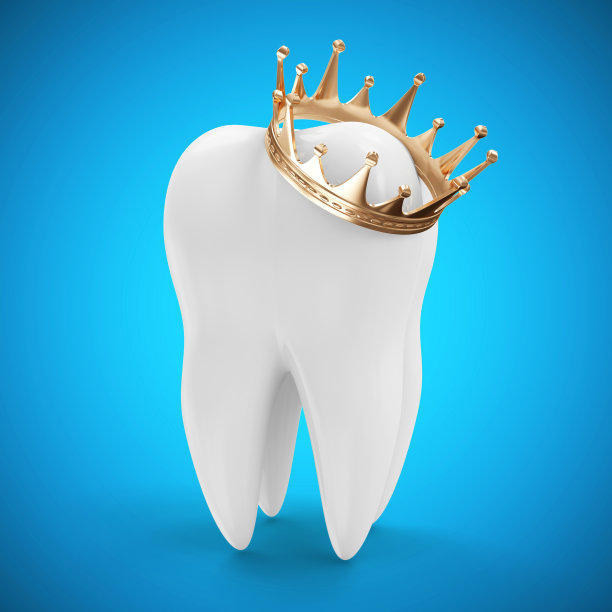Summary: Receiving a dental filling is a common dental procedure aimed at restoring the function and aesthetics of teeth damaged by decay or injury. However, its essential to take certain precautions before and after the procedure to optimize oral health. This article outlines four critical aspects: preparation before the procedure, understanding the types of filling materials, post-procedure care, and recognizing potential complications. Each section emphasizes the importance of proper dental hygiene and communication with dental professionals to ensure successful outcomes and maintain overall oral health.
1. Preparing for Your Dental Filling Appointment

Preparation is key to a smooth dental filling experience. Before your appointment, it is advisable to have a thorough consultation with your dentist. This will give you the opportunity to ask questions about the procedure and alleviate any concerns you might have about pain or recovery time.
Another essential step in preparing for a dental filling is ensuring that you have no active infections in your mouth. If you are currently experiencing any dental issues, it may be necessary to address those before proceeding with the filling. Inform your dentist about any medications you are taking or medical conditions that might affect the procedure.
Additionally, eating a light meal before your appointment can help, particularly if you are feeling anxious. While you should avoid eating immediately before your dental procedure, ensuring that your stomach is not empty helps maintain comfort during the procedure.
2. Understanding Filling Materials Selection
Choosing the right material for your dental filling is crucial for long-term dental health. Your dentist can explain the pros and cons of various materials, such as amalgam, composite resin, glass ionomer, and porcelain, depending on the specific needs of your dental situation.
Amalgam fillings, made from a mixture of metals, are known for their durability and strength, making them ideal for back teeth where biting pressure is greatest. However, for those concerned about aesthetics, composite fillings can be matched to the color of existing teeth and are commonly used in visible areas.
It is also wise to consider the longevity and hygiene associated with each material. Your dentist will guide you through your options while considering your oral health, lifestyle, and any potential allergies to certain materials.
3. Post-Procedure Care for Dental Fillings
After receiving a dental filling, appropriate care is crucial for healing and ensuring the filling lasts as long as possible. For the first few hours after the procedure, it is generally advised to avoid eating or drinking until the anesthesia has completely worn off. This helps prevent accidental biting of the cheek or tongue.
Maintaining good oral hygiene is vital following the procedure. Gently brushing and flossing around the filled tooth helps prevent future decay or complications. It鈥檚 worth noting that you should be gentle in the first couple of days to allow the filling to settle properly.
Watch out for any signs of discomfort or unusual symptoms, such as sensitivity to hot or cold or pain when biting down on the filled tooth. These symptoms could indicate that adjustments need to be made, and seeking your dentists advice promptly ensures that any issues are resolved before they escalate.
4. Recognizing Complications and When to Seek Help
Even with the best precautions, complications can still occur after a dental filling. Awareness of potential issues allows for quicker intervention if needed. One common complication is post-filling sensitivity, which may last for a few days but usually diminishes over time.
If sensitivity continues or you experience severe discomfort, it is crucial to contact your dentist for an evaluation. It may signal that the filling is too high or affecting your bite, necessitating an adjustment to align it properly.
Other issues may include the possibility of the filling coming loose or falling out, especially if proper care hasnt been maintained. Regular dental check-ups are essential for monitoring the integrity of the filing and ensuring overall oral health.
Summary: Proper precautions before and after receiving a dental filling can significantly enhance oral health and prolong the life of the filling. It is vital to communicate effectively with your dentist, adhere to proper oral hygiene practices, and remain vigilant for any complications following the procedure. Investing time in these steps will help maintain a healthy, beautiful smile.
This article is compiled by Vickong Dental and the content is for reference only.
Vickong Dental
Vickong Dental is a large medical group established in Hong Kong in 2008 by professors from well-known medical universities in Guangdong and Hong Kong, as well as medical doctors from key national '985' universities (including Master's supervisors and senior professors). The chain of branches brings together expert dentists with PhDs and Master's degrees from Hong Kong and Mainland China, committed to providing high-quality dental treatment.
"Vickong Dental Practices the University Motto of 'Healing and Serving Society,' with a Stable Operation for Sixteen Years. It Has Been honored with Hong Kong Enterprise Leaders's Choice,' and is a Global Trusted Implant Center for the Nobel Implant System. Recommended by Hong Kong Metro Broadcast and Guangdong Television, it Serves Customers from Over Thirty Countries and Regions, Gaining the Trust and Favor of Citizens from the Guangdong-Hong Kong-Macau Greater Bay Area and Surrounding Cities.

Thousands of customers' unanimous praise
The most recognized and highly recommended dental service by customers in the Guangdong-Hong Kong-Macau Greater Bay Area
We Ensure You Receive Detailed Care and Attention Here
Hong Kong standards, Shenzhen prices, Your Trusted English-speaking dentists

Vickong Dental Medical-Grade Instrument Disinfection Process
Vickong Dental Medical-Grade Instrument Disinfection Process

Vickong Dental Chain: A Warm and Comfortable Environment for Treatment






Appointment Hours

Q&A
Why choose Vickong Dental?
Vickong Dental practices the university motto 「Medicine to Benefit Society」, with each branch bringing together highly qualified dentists with doctoral and master’s degrees from Hong Kong and the Mainland, and has maintained seventeen years of steady operation。Recipient of 「2024 Hong Kong Enterprise Leaders Brand」, 「2025 Hong Kong Enterprise Leaders Brand」, a Nobel Biocare Global Trusted Implant Center, and a brand recommended by Metro Radio Hong Kong and Guangdong TV。
To date, we have served customers from more than thirty countries and regions,earning exceptionally high word-of-mouth recognition and trusted recommendations from residents across the Guangdong-Hong Kong-Macao Greater Bay Area and surrounding cities
We have eight major branches in Zhuhai、Shenzhen,and a consultation and service assurance center in Hong Kong,so you can book a free consultation at any time for any questions,which is very reassuring.
If I do not accept the quotation after the CT scan, will I be charged??
No! As long as the actual treatment has not started, you will not be charged any fees.
Will there be any additional charges during the treatment process?
No, there won’t be any additional charges. Before treatment begins, we will clearly explain the treatment plan and its corresponding fees. Only after the patient agrees and signs the consent form will we proceed with the dental service.
Can I pay in Hong Kong dollars?
Yes. Vickong Dental accepts payment in Hong Kong dollars. The amount will be converted based on the exchange rate of the day, and the applicable rate will be clearly communicated to you in advance.
Can I reschedule my appointment at any time?
Yes. Please contact us via **WeChat** or **WhatsApp** as early as possible, providing your original appointment time and details, along with your preferred new date and time slot for rescheduling.













